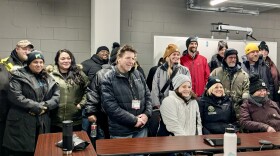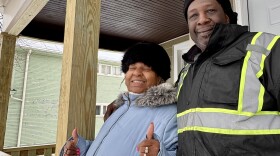-
President Trump's Big Beautiful Bill has changed tax credit eligibility for ITIN holders. A financial expert has advice.
-
The Democratic governor, who is not seeking reelection, focused on school funding, property taxes and the economy.
NPR stories
WUWM stories
-
Over the past decade, Milwaukee has become a city of renters — with the majority of residents renting rather than owning their homes. There are a lot of systemic reasons for that, but a few community organizations are buying their blocks back one home at a time.
-
From working out of his parents' basement to collaborating with Bobby Portis, Brad Roehl tells the story of Visionary Studios.
-
Kyle Cranmer, director of UW-Madison's Data Science Institute, weighs in on the spread of data centers in Wisconsin.
-
Wisconsin's only full-service Black-owned grocery store, the Sherman Park Grocery Store, is calling on the community to help keep its doors open.
-
WisconsinEye offers live and archived coverage of all branches of state government. An advocate for transparency explains that its shuttering comes at a great cost.
-
Whether to build more power plants in Wisconsin to serve a growing number of data centers is a tricky question, according to a new Wisconsin Policy Forum report.
-
Take a look back at WPF's top five findings from 2025 on various issues facing Wisconsin.
-
We use data centers every day. So why are they so controversial in the communities where tech companies want to build them?
-
Why are data centers so controversial in the communities where tech companies want to build them?
-
Tom Oberhaus is the co-operator of Cozy Nook Farms in Waukesha County. He shares why he remains optimistic after a disappointing Christmas tree season.


















